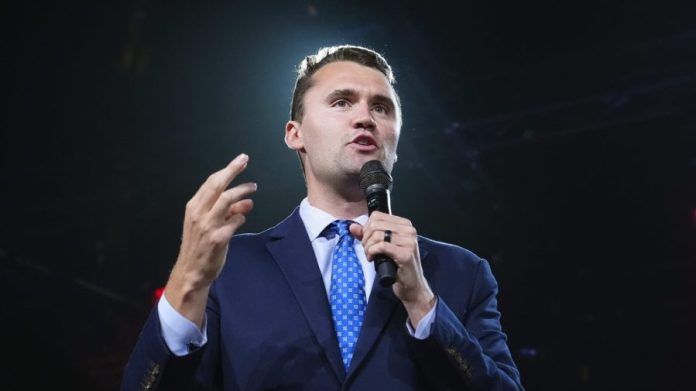
Charlie Kirk’s death is heartbreaking. Any loss of life to gun violence is. But what strikes me most is not only the grief, but the imbalance. In the weeks ahead, his story will dominate the headlines, the panels, the airwaves. His face will be on every screen, his legacy dissected endlessly. And yet, just two weeks ago, two children at Annunciation Catholic School were shot and killed, and already their names are already fading from memory.
It is all one and the same: lives ended by bullets in a country where violence has become routine. But we will act as if one life mattered more — not because he was more important than those children, but because his death was louder. That is the spectacle of political violence.
This is not to say Charlie Kirk deserved this fate. He did not. Violence is never justified. But we cannot ignore that his death fits neatly into the narrative of America’s culture wars. He was on the front lines of many of the issues that divided us. He thrived in the friction of division, even if his intentions were pure. And in today’s America, populism is met with populism. That is the dangerous cycle we are living through.
Make no mistake, the left has not been innocent in this. Democrats, too, have greatly contributed to the cycle of division. But this is not about tallying blame or keeping score. It’s about survival of civil society itself, where political conflict must stay in the realm of speech, not bloodshed.
This is no different from what we have already seen. Just recently, two politicians in Minnesota were killed. Before that, Donald Trump narrowly escaped an assassination attempt. These are not isolated events. They are symptoms of the same disease: a nation where political violence, once unthinkable, is becoming routine.
It is often said that the definition of insanity is doing the same thing over and over and expecting different results. Until we make structural changes, this cycle will continue. And now, I worry not only that it will continue, but that its pace and its scale will grow.
In 2023 alone, more than 46,000 Americans were killed by guns, the third highest number ever recorded, according to the CDC. About 18,000 were homicides, the rest suicides, accidents or undetermined. The Gun Violence Archive also tracked more than 600 mass shootings that year, nearly two a day.
Against those numbers, no single story should feel surprising anymore. And yet every time, we act shocked.
If the violence is relentless, then the guardrails of our democracy must be even stronger. That begins with remembering what sets America apart: the primacy of words over weapons.
We have a First Amendment in this country. Words should be answered with words, not bullets. James Madison wrote that freedom of speech was not only a right but the “guardian of every other right.” To forget that is to undermine the very idea of America.
A recent Pew survey found that 66 percent of Americans see political violence as a threat to democracy, yet nearly a quarter believe it may be justified in some cases. That is the road to ruin. It proves that the danger is not only in our weapons but in our minds, in the slow erosion of boundaries that once kept political conflict within the realm of speech.
I want to address one point of division that emerged almost immediately after Kirk’s death, when Speaker Mike Johnson called for a moment of prayer in Congress. Democrats rejected it, and Republicans were outraged. But here we must remember our Constitution. The Establishment Clause of the First Amendment bars government institutions from endorsing or mandating religious expression. That doesn’t forbid private prayer, but it prevents Congress from appearing to privilege one faith, leader or moment of worship over others. To truly honor Kirk’s legacy, we must respect the Constitution itself, even when it contradicts the beliefs he often proclaimed.
Maybe this is the moment for all of us to go back and read the words of our founding fathers, the basis and the philosophy of this country.
George Washington, in his farewell address, cautioned against “the spirit of party,” which he said would distract public councils and enfeeble government. Abraham Lincoln warned that if America were to fall, it would not be from foreign enemies but from within, through our own self-destruction.
More than two centuries later, we are living in the world they warned about.
I don’t pretend to have the answer on a policy level. I don’t think anyone does. But we need to look at everything objectively, whether that means stronger gun laws, better mental health support, harsher criminal penalties, or reforming political rhetoric.
What I can say is this: go to someone with differing opinions and tell them you respect their views. Tell them that this needs to stop. Tell them we must begin to put country over party, and have a civil conversation about this issue. It is OK to agree to disagree. It is not OK to abandon respect.
We must demand better. This is the United States, the greatest country in the world. We are a melting pot, and differences will always be present. But we must never forget we are Americans first — that is how a nation survives.
Corey Kvasnick is an entrepreneur, investor, philanthropist, and a contributor to Common Ground Thinking.

